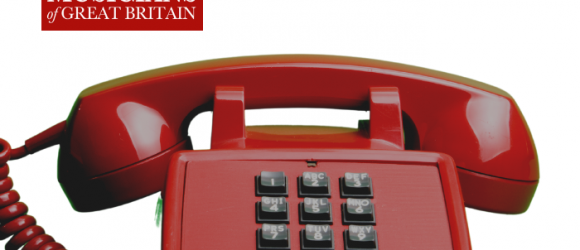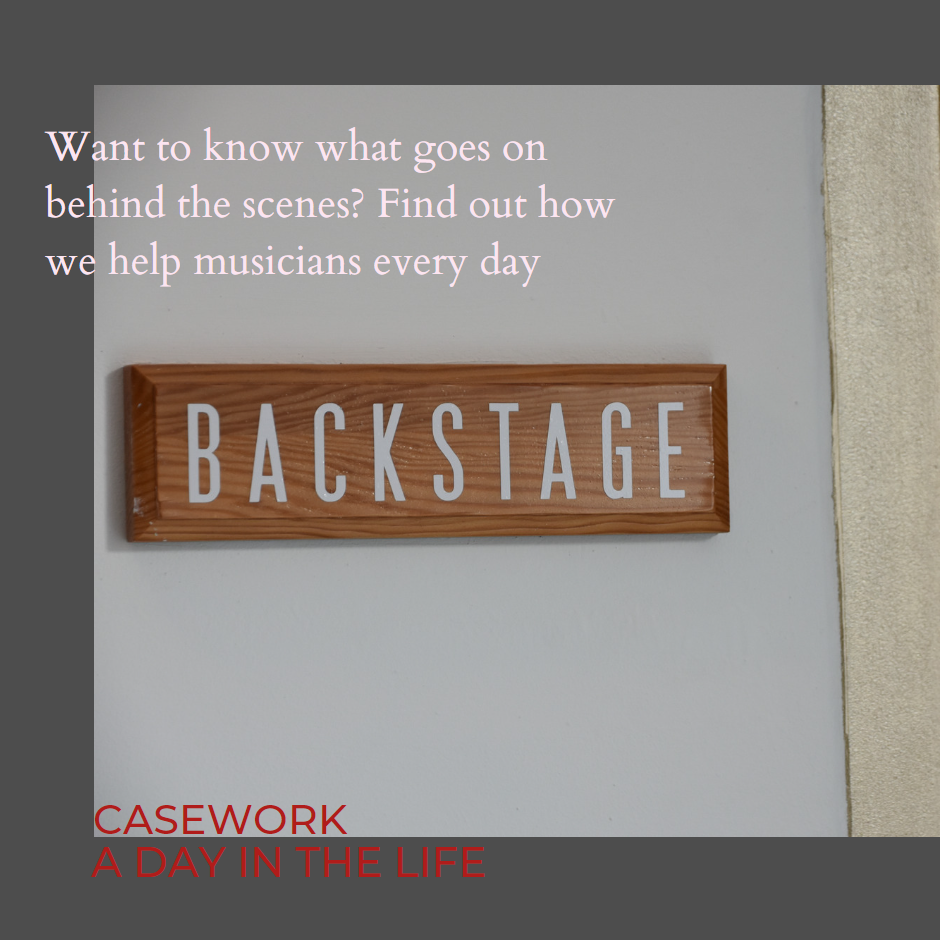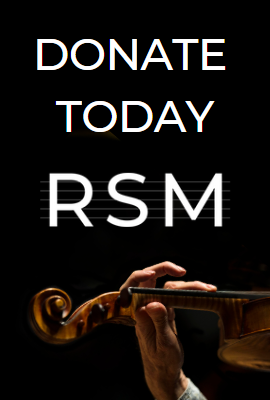RSM People: A Day in the Life of Casework

Together, Head of Casework Leon Hart and Caseworker Yinka Fasawe, are the music profession’s helpline. If you know a colleague in need because of injury, illness, stress or anxiety, the Casework team are on hand to help. Find out here what goes into supporting musicians on a day to day basis.

How long have you been at RSM and what was it that attracted you to want to support the music profession?
Yinka: I have worked in the music charity sector for 20 years and in the medical profession before that. I first joined RSM in May 2006, when I was working at BAPAM (The British Association for Performing Arts Medicine), so I already knew of the Society.
Leon: I admit I hadn’t heard of RSM before I applied for the role at the start of 2021, but I have been in the charity sector for 16 years and this was the first time I came across a Grant Giving vacancy within the arts. I have a sibling in the music profession and, whilst I myself am not musical, I am an artist, so the opportunity to not only continue with my profession but within an area that I have a personal connection with was too hard to resist.
Casework in numbers
So far this financial year (from 1 August 2021):
317 beneficiaries awarded a total of 546 grants
From 19 to 96 years of age
Total value of grants awarded to beneficiaries: £599,542.65
Can you describe an average day?
Leon: For the first six months, most days it was assessing Casework’s policies and procedures, and updating or introducing new processes where necessary. Some areas of which are regularly reviewed, so there is always work to do on them. But my usual day consists of helping existing and potential beneficiaries with any queries, that’s what we’re here for. I will respond to enquiries via email and phone calls, signposting them to our application form or other resources, where relevant. When the application forms are returned that’s where Yinka takes over.
Where possible, we will approve grants outside of the monthly Governors meeting to ensure we can help musicians as quickly as possible. Depending on the value, it may be me who needs to authorise these. For more complex cases, Yinka and I discuss them as part of our regular catch ups. It may be that we need to defer the decision of whether we can support an individual to the Governors at their next meeting.
I also spend time liaising with other charities and organisations to either offer my assistance – often charities put requests into ACO (the Association of Charitable Organisations) to ask for help from others benevolent funds or see if there is a way we can work together / share knowledge.
Yinka: I spend my days on a mixture of new and existing beneficiaries, which is what we call the music professionals we support. For new enquiries, I will process their application for financial assistance, and assess whether they qualify for support, which depends on several factors, including their financial position and medical need.
Support is available to both members and non-members, but non-members applications must be supported by a member, caseworker or an approved organisation to prove they are a part of the music profession. Otherwise, the process is the same, we take a look at what they are applying for; one-off expenditure for things such as medical treatments or therapies, or short-term living expenses if they are recovering after accident or illness. We ask for evidence of their financial position and the medical need, before making a decision. As Leon says, these can either be approved by us directly, or deferred to the Governors to discuss at their next meeting. Once a decision has been taken, I will process invoices for payments on behalf of beneficiaries.
The assistance doesn’t end there though, I will keep in regular contact with existing beneficiaries to see how they are getting on. These people are more than just numbers on a spreadsheet, we want to make sure our colleagues in the profession are looked after as best as possible.
Is there a huge variety in the kinds of support people seek from RSM?
Leon: Support is varied, from therapies both physical and psychological, to surgery costs, mobility aids and care top up fees. Short term financial assistance can also be provided if the applicant is unable to work for a period of time whilst recovering from accident, injury or illness. But it’s not always physical / psychological needs we cater for, we also receive applications for moving costs, white and brown goods. All sorts.
Do you or a colleague need support? Then contact Leon and Yinka on 020 7629 6137 or [email protected] for help.




